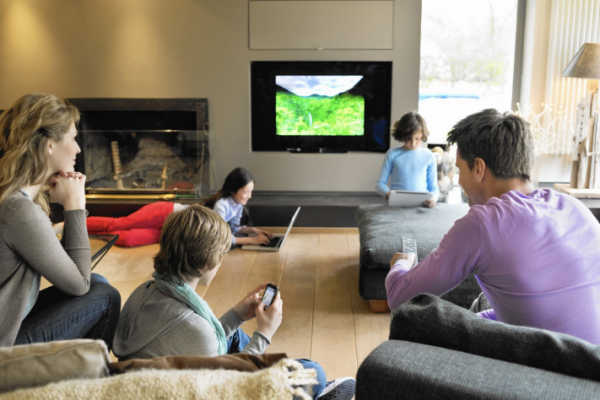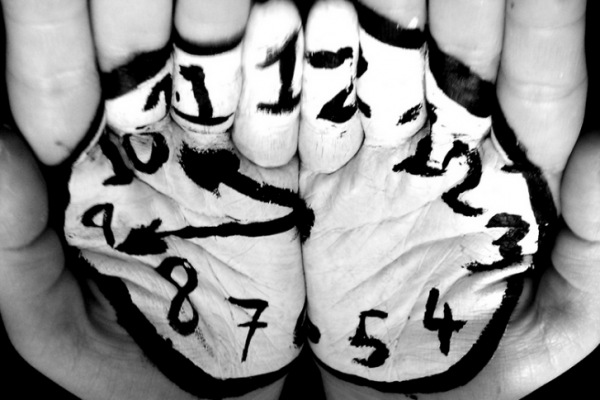
The Dad Who Nearly Lost His Child And How It Changed His Parenting
The Dad Who Nearly Lost His Child And How It Changed His Parenting
Two weeks ago a freshly focused father had come to hear me speak to a bunch of fathers about being a better dad to our kids.
He was on the edge of his seat, taking notes.
In a very interactive way, I covered 14 bits of advice to spend more time with our kids.
As I opened up the conversation, he told us why he was so passionate about this very topic…
‘I am a dental surgeon. I am in international demand. Recently I decided that from now on, instead of leaving my wife and kid, I would take them with me to many of the conferences I speak at, even though it costs a fortune.’
He then explained how a near-tragic experience made it clear that he should pay the price to have them with him.
‘Just 3 weeks before, my little boy had a fever so high that he stopped breathing for a few minutes. We nearly lost him. I nearly lost him from this world, from my life. I am so grateful he survived.’
When we asked him what he had learnt, he said something to the effect of…
‘I wouldn’t wish this kind of trauma on anyone, but in my case, my priorities are much clearer. The brevity of life became a vivid reality. All in all, we have precious little time with the people most precious to us. It’s not just my child who needs time with me – I need time with my child. As much of it as possible.’
Like I said, this man was relishing any wisdom other parents could share with him to organize our busy lives around the priority of time with our kids. I shared 14 practical ways with him.
In my last post, I unpacked the first 7 of these ways to spend more time with our kids. I said we can …
- Stay motivated by reminding yourself why.
- Ruthlessly prioritize.
- Grab daily gaps with your kids.
- Don’t miss the special events in your kid’s life.
- Develop your parenting muscle.
- Switch off your phone when you get home.
- Replenish yourself so you bring more to the moment.
Here are the other seven ways to give more of our time to our kids…
8. Re-invent your life around your family identity.
I am going to try write on this more in the future, but let me give it a first go.
In the Western world, we are hyper-individualistic.
This has proven to be toxic way to live. In this way of life, the goal of life is for each of us to go as far as we can in personal achievement and accumulation, with a secondary regard to our relationships
When we see the world like this, we see our family as a docking station, where everyone comes home to recharge so that they can perform again the next day. In this case, each of us merely uses our family as a platform for our individual success.
The result is that we separate and compartmentalize our lives and our family.
In the West, we unthinkingly raise our kids to live and think like this. In fact, we model it to them.
They grow up and see how we separate our work lives, our social lives, and our hobbies from our family lives. So doing, we teach them to have several identities, of which family is only one, and certainly not the most important one. We show them that our family identity is but a slice of our identity, not the core, grounding identity in which other identities can grow.
Think how this way of seeing the world affects our parenting. It causes us to be frustrated, because we feel that we have to constantly choose between our family priorities and our other priorities. We feel like our family time is taking away from other important activities or that other important activities are taking away from family time.
The result is we feel torn.
Is there a better way?
Sure there is. It is to re-invent our lives around our family identity, and to teach our kids the same.
It is to decide to live, in, with and through your family. It is to reject family as only one of the compartments of our life and rather to see family as the environment in which we experience all of our life.
The more we identify ourselves with our family the more we feel like this is the natural way to live. In this case, family is not a part of my life. My family is in me and I am in them and so we need to be deeply interconnected.
How does this work out in life and parenting?
It begins by taking the elements of life – work-life, school-life, faith-life, friendships, hobbies – and doing all of them with, in, through and as a family. It means asking, ‘How can we as a family stand with each other in all aspects of our lives?’
Thinking like this could result in all kinds of fresh approaches to parenting …
- choosing hobbies we can all enjoy together, and letting go of time-demanding hobbies that separate each other too often or for too long a period of time.
- that if anyone in the family achieves or learns something, that we stand with them, interested and engaged, cheering them on, even achieving and learning it with them.
- that if there are large, recurring areas of life that have an invisible ‘no spouse, no children allowed’ sign, that I work to transform or eliminate them.
- I take my kids to work every now and then, and explain to them throughout the day what I am doing and why. (One day with me at work will teach them more than a 100 days at school.)
- I take my spouse or one of my kids on a work trip with me.
- that we go to church together as a family, especially a church that intentionally builds strong lines of communication and overlap between adults and kids.
- that my kids’ friends are my friends, and my friends are my kids friends.
See, thinking like this means no longer asking, ‘How can we spend more time together as a family in the midst of our highly individualized lives?’ Rather it means, ‘How can each of us learn to live our lives in, with and through our family?’
Our family identity as parents and children is not just one of our identities. It is a core identity. The rest of our lives does not get to define our family-life, rather our family-life gets to define the rest of our lives.
I am well aware that so much of western culture sets itself up to separate us from our families. I am inspired by the words of Morrie in the book, ‘Tuesdays with Morrie’: ‘When the culture doesn’t work for us, we invent our own.’
9. If possible, work from home or closer to home.
The trick is to commute less each day. Time in the traffic is time not with your kids.
I know this might not be possible for you, but if it is, go for it.
If heavy traffic is the problem, maybe you can change your office hours. Through years of hard work and special arrangement, a high flying lawyer friend of mine avoids traffic by leaving home at 5:45am, then leaves the firm at 2:45pm. This gives him 2 hours more with his kids per day.
For those of you who can’t change your working hours, and are struck in traffic, my deepest empathy. I hope you’re using some of that bumper-to-bumper time every day to sharpen yourself as a human, as a spouse and dad by listening to great podcasts and audible books. At least a few times a week, I hope you get out the car a little sharper than you climbed into it 45 minutes before.
Another friend of mine works from home. He says this means he can do school drop offs which, he says, is a bonding way to start each day – chatting in the car, sun-creaming and praying for them before they get out. Then, in the afternoons when his kids are home, he limits their access to him, but sets his phone alarm to give himself 15 minute breaks, in which time he grabs a drink, and connects with his kids, simply joining in whatever they’re doing in the garden.
10. If possible, work half days.
At various times in her parenting life, my wife has:
- been able to not work at all,
- worked half days,
- worked full days (and sometimes nights)
Obviously the child in its first months deserves a full time mom, but she says that working half day has been her favourite option after that.
Working means more income. It also means a greater sense of personal stimulation – so she can bring a happier version of herself home.
But working full time is heavy! I know that many moms have to. (I grew up with my single mom working six or seven days a week to make ends meet, and I am still in awe of her).
But if you can work less it’s so worth it! Besides if you consider how much more money you make by working full time over half time, and then consider how much you pay for that extra child care, it often isn’t worth it anyway.
11. Limit your child’s extra commitments.
For hundreds of years, children seemed to fair quite well by getting good at one or two extra activities as they grew up, but somehow we got it in our head that every human must excel culturally, sportingly, academically, musically.
There’s me for example – I can’t play a musical instrument, I never excelled at a sport (other than surfing and skating), and I didn’t do a single extra lesson anything. Yet I fair just fine in this world, which rewards people with specialised skills anyway.
But now our kids are burning the candle at both ends – which chows away family time, not to mention stretching them too thin and burning them out.
Much better to limit our kids. Tell them ..
‘We are a family that do things different. For us, less is more. We might not cram as many activities into our lives as other families, but that means we have more time to spend enjoying one another – together growing as human beings not human doings.’
Julie was once speaking to a woman that she admires as a mother. This woman’s phone rang. Julie picked up the flow of conversation:
Daughter: ‘Mom, Sandy has started violin. I want to start violin.’
Mom: ‘That’s lovely for her. But remember our family rule – only two extra-curriculur activities. You already do Ballet and Jazz, so which are you wanting to give up?’
Daughter: ‘Hmm, let me think about this.’
Some of our kids might need some encouragement to sign up for more stuff, but I am guessing that most of them need us parents to be pulling on that hand brake.
12. Ritualize weekly events to etch in memories.
By ritualize I mean do repeated events with the intention of creating memories and inculcating family values.
Every family gets to create their own set of rituals. Here is a glimpse at some that are working well in our family…
Friday fun nights. Me and a few kids jump in the car to go buy pizza bazes, chocolate and coca-cola (the only night we indulge ourselves in sugary poison), then we pick up a family DVD, then we make pizza and eat them while we watch the movie.
Saturday morning pancake breakfasts. What’s better than a hot pancake with melted butter, cinnamon and honey?
Family fun-day outings. We climb in the car on the weekend and sing together, ‘Ha ha ha, ho ho ho, it’s happy family fun day. No matter what the weather, we’ll be together. So let’s have fun by the ton.’
Mid-week dancing. We play music loud, dim the lights and vibe!
Crazy sleepovers. We drag mattresses through to the lounge and all sleep together.
You might have even better rituals. What these, and other rituals, have the power to do is make memories stick. They put a stake in time itself.
13. Take each child on a date.
When I go out for an outing with two of my kids, it feels pretty much the same as if I go out with only one of them.
But they experience it differently.
In a multi-child home, children divide up our presence by how many other people are in the room. Though I am connecting with all 6 of the other people in my family, they individually perceive that I am giving them each one sixth of the time I actually am.
The solution is to take your kids on planned or spontaneous ‘dates’ (that’s what my Ivy calls them) or ‘guy times’ (that’s what my boys call them) every now and then.
This way they get all of you.
It’s remarkable how they value this time. I’d say that an ideal is once a month, but less or more could also work. I have found these times are best when your child gets to look forward to them, and when your child gets to choose where you go and what you do. I also use this time to ask them how they are really doing, if there is anything they want to tell me, and to tell them again how proud I am to be their dad.
Oh, and very important, once you have told them in advance of this time, keep your appointment as you would for the most important person on earth.
14. Diversify your modes of being together.
Don’t think one-dimensionally about time together. There’s so many different ways to be together. We need a mix of them…
There’s quantity time. This is when we’re each doing our own thing, though we’re in the same place together. But there’s also quality time. This is when we’re engaged with our child.
There’s face to face time, sitting at a table talking. But there’s also shoulder-to-shoulder time, doing something together, driving in a car, going for a walk.
There’s chill time, where everyone is low key. But there’s also energy time, when our bodies are moving and there’s some excitement in the air.
There’s time when I lead the activity – ‘Come let’s do this.’ But there’s also time when I watch what they’re doing and ask, ‘Can I join you?’ In those times I try to not take over.
There’s observation time – I watch how they deal with situations, how they interact with my spouse and their siblings. I try to discern the emotional climate they’re presently in. But there’s also interactive time – I ask them questions, take questions, talk freely about this and that, show curiosity about their thoughts and feelings.
There’s times when I am out in front of my kids, pulling them to new adventures and discoveries. Other times I am beside them, walking with them through the unfolding joys and pains that come their way.
Still other times, I am behind them, encouraging them to go for it, to reach out, to draw back their own arrows and let them fly.
_____________________________________
I hope you’re not waiting for a near-tragedy before you get how important time with your kids is.
Of course, I hope and pray that your children and mine outlive us by decades. But even if they do, we have far less time with them than we realize. My friend calculated that, given the progressive independence of our offspring, we will spend the first 50% of all the hours we have with them across our whole life by the time they are 9.
The most important choice in life is which people we give our time to – our spouse and kids deserve the lion’s share.
Though I hope you share this post with others, I hope you don’t stop there. I hope you sit down, look through these 14 points again, and ask yourself (and your spouse),
‘What needs to change so I/we can spend more time together as a family?’
Comments
Also published on Medium.




